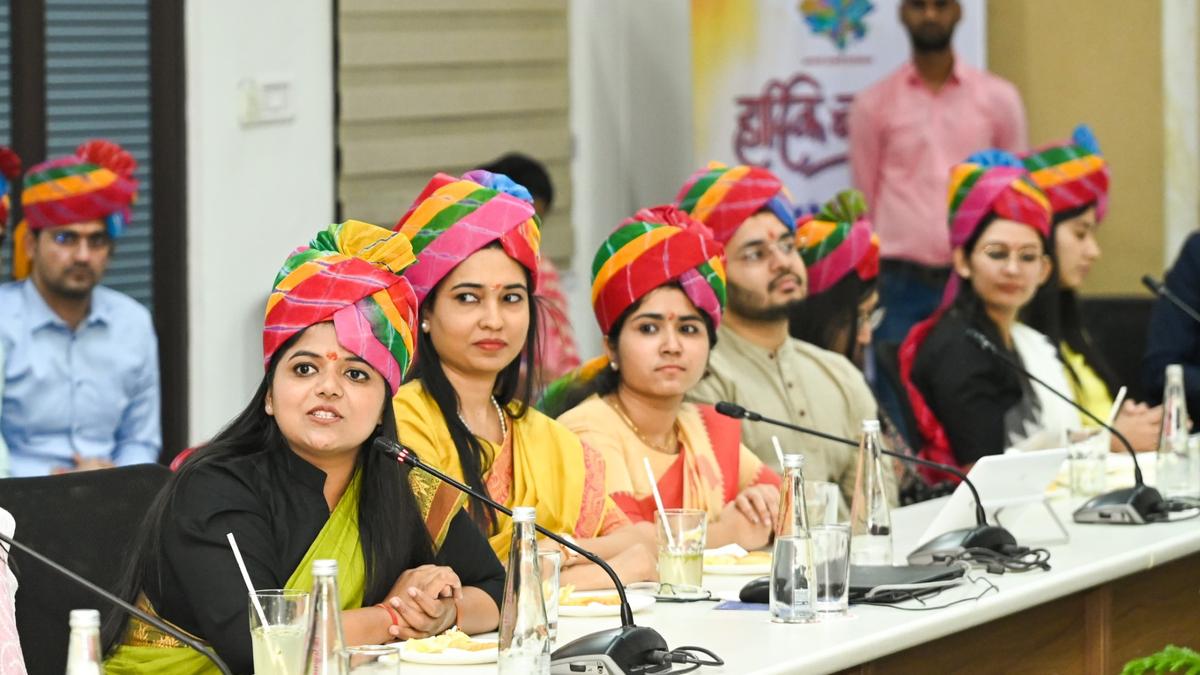In 2016, a study published in the Cardiovascular Journal of Africa, had suggested that cardiac causes led to nearly 10 percent of the maternal deaths in India.
Since the time this study came out, multiple other research reports have shown that the risk of heart diseases increases during pregnancy and labour.
A 2018 study, published in the Mayo Clinic Proceedings journal, showed that the risk of suffering a heart attack rises significantly while “pregnant, giving birth, and during the two months following the delivery.”
This year, the Indian Council of Medical Research (ICMR) has undertaken the task to conduct a study to find out the number of maternal deaths that happen due to cardiovascular diseases in the country.
The study authors will be responsible for developing “treatment protocols” and preventive measures.
As the ICMR is set to hold this research across 50 institutions in India, FIT reached out to health experts to understand why heart diseases are linked with pregnancy and delivery.
Explained: Why the Risk of Heart Diseases Increases During Pregnancy & Labour
1. The Big Question: Why Are Pregnancy and Heart Diseases Linked?
Dr Aruna Kalra, Director, Obstetrics and Gynaecology, CK Birla Hospital, Gurugram, tells FIT, “The physiological changes of pregnancy increase the workload for the heart.”
What does this mean? Pregnant people have 1.5 litres of additional blood in circulation in their body – for the foetus.
Due to this, the cardiac output goes up by nearly 30 percent, increasing the stress on the heart. During pregnancy, the heart rate also increases significantly. So, there's added load on the heart.
But, there are other reasons as well.
Dr Aparna Jaswal, Director, Electrophysiology and Cardiac Pacing, Fortis Escorts Heart Institute, Okhla Road, New Delhi, says that the risk of cardiovascular problems during pregnancy could increase due to hormonal changes, pregnancy-induced anxiety, and a family history or previous instance of heart conditions, among other reasons.She adds, “Due to high blood pressure, women can also suffer from eclampsia, which can lead to brain stroke and heart attacks.”
Dr Kalra nods. She says that non-communicable diseases or comorbidities – like gestational diabetes, obesity, thyroid, PCOS, hypertension – also make women more prone to pregnancy-induced cardiovascular problems.
Expand
2. ‘Blood Loss After Delivery’: Sudden Cardiac Arrest Postpartum Is Rare, but Still a Risk
The risks, however, are not just associated with pregnancy. Postpartum cardiac arrests are rare, but still a threat, says Dr Kalra.
“After delivery, there’s sudden blood loss from the body, and hormonal changes too. The change in blood pressure can lead to sudden cardiac problems postpartum, which we cannot predict.”Dr Aruna Kalra
Both the experts reiterate that cardiomyopathy and valvular heart diseases are difficult conditions to handle medically.
According to Johns Hopkins Medicine, “Cardiomyopathy is a weakness of the heart muscle. Most commonly, it occurs right after delivery. It is a rare condition that can carry mild or severe symptoms.”
On the other hand, valvular heart disease occurs when “one or more of the heart valves do not open or close properly,” according to the Heart and Stroke Foundation of Canada.
The pressure of additional cardiac output can lead to valvular heart disease in pregnant women, explains Dr Jaswal.But there must be some precautions that people planning to get pregnant can take to avoid any health risks, right?
Expand
3. ‘Preventive Checkups, Regular Consultations’: Doctors Want You To Take These Precautions
“Before conceiving, people should consult a doctor and try and find out if they are in optimal health. Prior to getting pregnant, they should also quit smoking, quit drinking, decrease their intake of junk food, monitor if there are any deficiencies in their body, and check their BMI level.”Both the experts also suggest that during antenatal period, the pregnant person:
goes for regular health checkups
exercises regularly
eats a healthy and balanced meal
gets proper sleep
leads a healthy lifestyle
Dr Jaswal adds that women should also get their haemoglobin levels evaluated regularly.
“We don’t pay enough attention to anaemia in women. In India, haemoglobin levels in so many women are way less than the global standards.”Dr Aparna Jaswal
Dr Kalra agrees. She explains that doctors advise “conceiving once you are in your best health,” because pregnancy makes you prone to hypertension, hormonal issues, and postural problems, and adds stress to your body.
She says the heart must "be prepared to handle this additional load during pregnancy," considering that "the pressure during labour, when there are contractions and increased pulse rate," would be much higher.
(At The Quint, we are answerable only to our audience. Play an active role in shaping our journalism by becoming a member. Because the truth is worth it.)
Expand
The Big Question: Why Are Pregnancy and Heart Diseases Linked?
Dr Aruna Kalra, Director, Obstetrics and Gynaecology, CK Birla Hospital, Gurugram, tells FIT, “The physiological changes of pregnancy increase the workload for the heart.”
What does this mean? Pregnant people have 1.5 litres of additional blood in circulation in their body – for the foetus.
Due to this, the cardiac output goes up by nearly 30 percent, increasing the stress on the heart. During pregnancy, the heart rate also increases significantly. So, there's added load on the heart.
But, there are other reasons as well.
She adds, “Due to high blood pressure, women can also suffer from eclampsia, which can lead to brain stroke and heart attacks.”
Dr Kalra nods. She says that non-communicable diseases or comorbidities – like gestational diabetes, obesity, thyroid, PCOS, hypertension – also make women more prone to pregnancy-induced cardiovascular problems.
‘Blood Loss After Delivery’: Sudden Cardiac Arrest Postpartum Is Rare, but Still a Risk
The risks, however, are not just associated with pregnancy. Postpartum cardiac arrests are rare, but still a threat, says Dr Kalra.
Dr Aruna Kalra
Both the experts reiterate that cardiomyopathy and valvular heart diseases are difficult conditions to handle medically.
According to Johns Hopkins Medicine, “Cardiomyopathy is a weakness of the heart muscle. Most commonly, it occurs right after delivery. It is a rare condition that can carry mild or severe symptoms.”
On the other hand, valvular heart disease occurs when “one or more of the heart valves do not open or close properly,” according to the Heart and Stroke Foundation of Canada.
But there must be some precautions that people planning to get pregnant can take to avoid any health risks, right?
‘Preventive Checkups, Regular Consultations’: Doctors Want You To Take These Precautions
Both the experts also suggest that during antenatal period, the pregnant person:
goes for regular health checkups
exercises regularly
eats a healthy and balanced meal
gets proper sleep
leads a healthy lifestyle
Dr Jaswal adds that women should also get their haemoglobin levels evaluated regularly.
Dr Aparna Jaswal
Dr Kalra agrees. She explains that doctors advise “conceiving once you are in your best health,” because pregnancy makes you prone to hypertension, hormonal issues, and postural problems, and adds stress to your body.
She says the heart must "be prepared to handle this additional load during pregnancy," considering that "the pressure during labour, when there are contractions and increased pulse rate," would be much higher.
(At The Quint, we are answerable only to our audience. Play an active role in shaping our journalism by becoming a member. Because the truth is worth it.)

 1 week ago
134
1 week ago
134



